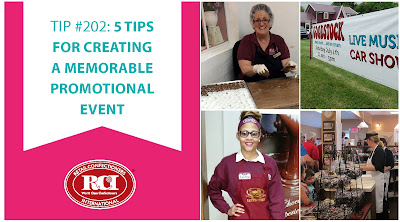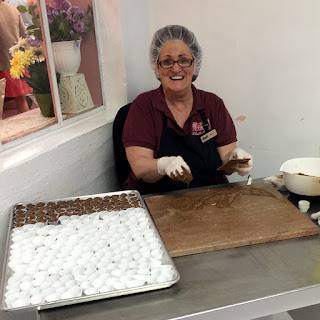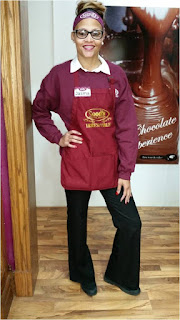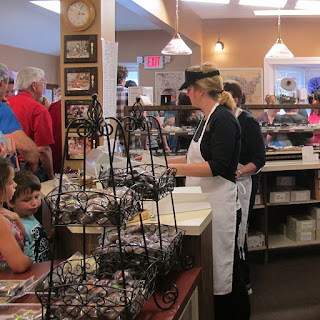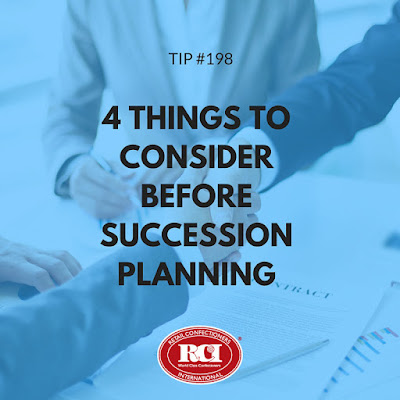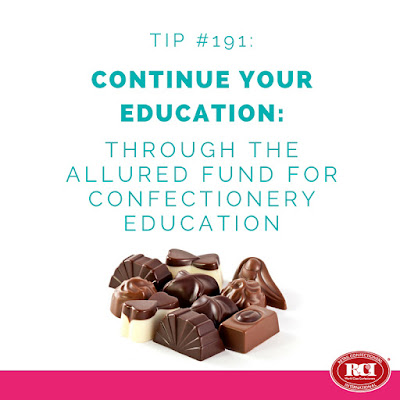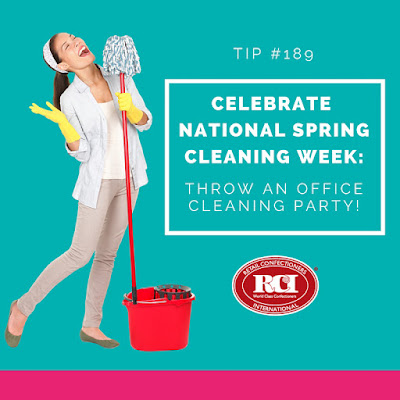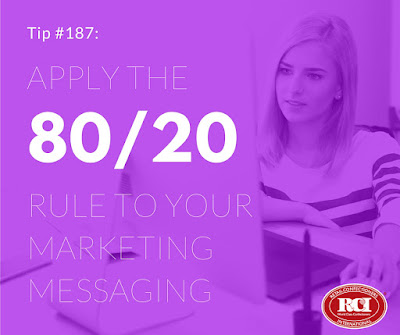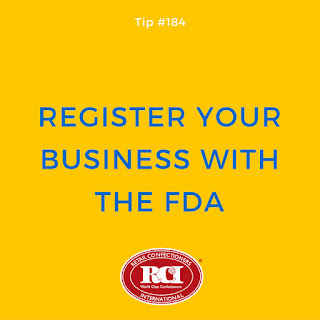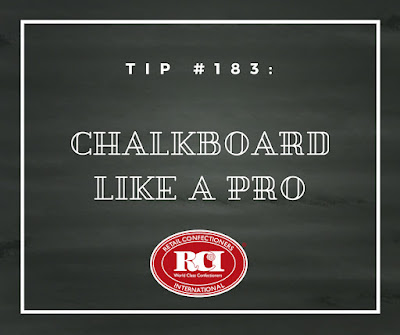|
|
Posted By RCI,
Wednesday, July 13, 2016
Updated: Wednesday, April 29, 2020
|
Hosting a promotional event is a great way to develop new customers and increase traffic from existing customers. RCI member, Randy Good of Good’s Candy Shop, instructed attendees at RCI’s Merchandising Essentials course on how to execute a successful promotional experience. Here you will find five tips for building your business through effective promotional events.
#1: Design an Event Around What You Do Best
For candy makers, this is the perfect opportunity to illustrate the care and attention that goes into your confections through candy-making demonstrations. Open your production facility for tours and allow guests to watch and sample your products.
We recommend complying with Good Manufacturing Practices (GMP), by requiring guests entering your production space to wear hair/beard nets and closed-toe shoes, to remove jewelry and abide by any other regulations made by Federal and State government. With clear communication of your guidelines, your guests will understand and appreciate the steps you’ve taken to ensure for the quality of your products and for their individual safety – plus, who doesn’t love taking a selfie in a hairnet?!
#2: Create a “Sticky” Event Name
When creating a name for your event, think of names that will “stick” or stand out in peoples’ minds. A memorable event name will help with the promotion of your event by capturing the attention of possible attendees, as well as the local media. If you host the event on an annual basis, this will also increase the chances of attendees to remember the previous events and the great time they had!
 |
| Goodstockis just one of many eventsGood's Candy Shophosts to draw traffic to their retail store. |
#3: Represent Your Brand at its Best
Before you welcome new visitors into your business, keep in mind you only have one chance to make a first impression. Make sure all aspects of your business represent what your brand is or hopes to be. Not only should your store sparkle from front to back (even the area behind the counter that “no one” sees), your staff’s appearance should also reflect your brand. If your associates have a uniform or dress code, before an event is a good time to evaluate whether or not they need new aprons, name tags, branded apparel, etc. and to remind all staff of any guidelines pertaining to their attire. If you don’t have a dress code, consider creating an event t-shirt for your staff to wear – this will not only create a more cohesive look for your team, but help customers better identify staff if they have questions.
#4: Train Your Staff to Give
Successful events are about giving to the community. Train your staff on how to give information, courtesy, smiles and samples. Providing basic talking points or key phrases can help staff feel confident and better prepared to offer exception customer service to guests.
#5: Plan the Logistical Flow of Guests
Creating a plan for the flow of traffic through your facility can make a significant impact on the guest experience. Determine a plan to gently guide guests within your space by assigning specific staff to various touch points. Starting (most importantly) with a welcome greeting at the entrance, plan for three to four touch points (or more depending on the size of your store). At each touch point, station staff to offer product samples and even the chance to win a prize for signing up to receive promotional emails or joining your birthday club. By planning ahead, you can prevent potential bottle necks and ensure your guests get the most out of their experience.
Tags:
branding
Customer Appreciation
Customer Service
Events
Marketing
Owning a Business
Permalink
| Comments (0)
|
|
|
Posted By RCI,
Wednesday, June 29, 2016
Updated: Wednesday, April 29, 2020
|
At Retail Confectioners International’s (RCI) Annual Convention & Industry Expo, Keynote Speaker, Matt Havens, kicked off the convention week with the hilarious opening session, Us vs. Them. Being a relevant topic for leaders of any business and industry, retail confectioners filled the education session eager to discover new solutions to effectively manage four distinct generations operating side-by-side. During Haven’s presentation, he poked fun at the different generations represented in today’s working environment, pointing out that there are really only two generations in the workplace, “people younger (or less-experienced) than you are and people older (or more experienced) than you are.”
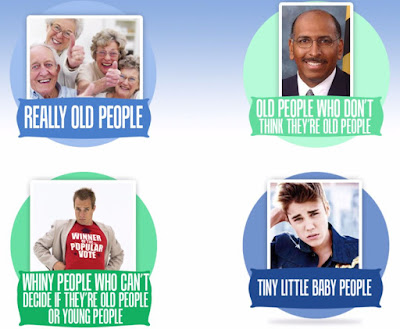 |
©2016 Keynote Speaker Matt Havens. All Rights Reserved.
Not only were attendees rolling with laughter during his presentation, they walked away with a simplified understanding of the generation gap, as well as applicable strategies to create a more effective working environment for team members of all ages.
See below for just a few major takeaways, as well as strategies from Matt Haven’s Us vs. Them.
MAJOR TAKEAWAYS
·Advancement is a process that never stops.As a parent, you will continue to learn new things 20 and 30 and 40 years after the birth of your children. And as a professional, you should expect to keep learning new skills, new technologies, and new approaches in the last five years of your career just like you did in the first five years of your career.
·Your company’s current practices and processes exist for extremely good reasons.To date, those practices and processes are the best that anyone who has ever worked at your company has ever come up with. That doesn’t mean they can’t be improved, but it definitely means that they shouldn’t be completely discounted either.
·No matter what generation you consider yourself to be a part of, you do not know everything there is to know.Every generation needs the other, because no one group of people has a monopoly on knowledge. You need your older colleagues to learn how they’ve done what they’ve done and to help guide you so that you don’t have to constantly reinvent the wheel; and you need your younger colleagues to help youcontinuouslylook at your business from a new perspective.
GENERATIONAL STRATEGIES
·Invite your newest employees to deliver a presentation to the rest of your team on a topic they already know something about.It will convince your newest team members that you value their knowledge, and it should also convince your older team members that your new hires have something valuable to offer.
·When discussing a potential change, invite everyone to debate the pros and cons of adoption.You probably won’t get 100% buy-in once the final decision is made, any more than you’ll get 100% buy-in from anything. But you will be certain that you’re making your decision with all the available information, and everyone will know the potential risks to watch out for as well as the potential rewards for moving forward.
·Create teams of varying age ranges.Studies have shown that diverse groups that communicate well with each other are consistently more productive than homogenous teams.
Learn more about Matt Haven's and his insightful journey to understanding the generational gap atwww.matthavens.com.RCI Members:Stay tuned to view Matt's full presentation and other education sessions from RCI's 2016 Annual Convention & Industry Expo, which will be available on our member site atretailconfectioners.org.
|
Tags:
Employee Management
Family Business
Generation Gap
Leadership
Next Generation
Owning a Business
Permalink
| Comments (0)
|
|
|
Posted By RCI,
Tuesday, May 24, 2016
Updated: Wednesday, April 29, 2020
|
Successful business acquisitions for both parties are often the result of strategic planning and preparations made many years before the business goes up for sale. Financial advisers will recommend the planning process starts at least two to five years prior to listing the business for sale, with the intent to make your business appealing to potential acquirers.
In this excerpt from Building and Selling a Successful Business, an education session lead by Andy Charles and Erin Collins of Haven’s Candies during RCI’s 2015 Fall Regional Conference, Charles outlined the following four areas to evaluate when molding a successful business in preparation for acquisition.
- FinancesThe financial picture of a business being groomed for future succession will look much different than a business that is operating to sustain itself and grow. It is important to position your business in a way that you are able to offer the best possible financial picture to future potential buyers.
- Staffing
A self-sustaining operation is more appealing to potential buyers. Begin training and nurturing your staff to operate the business, whether you are there or not – which, by the way, allows you to take a vacation now and then too.
- Facilities & Equipment
A business that has been in operation for any length of time is likely to have less than ideal facilities or outdated equipment, which may have been tolerated through the years because the business was focused on other areas. This doesn’t mean you should build a new manufacturing facility or replace all of your equipment, but consider how these elements of the business will appear to an outsider. Then evaluate what is worth the investment to update and what’s not.
- Customers and suppliers
When preparing your business for an acquisition, assess what opportunities and risks exist? What impact does a transition in ownership, both negative or positive, have on those relationships and how will you manage that?
Time and preparation offers the opportunity to position your business in a way that allows for the highest return, as well as the ability to focus on what’s important to you. For Charles, it was crucial to find a successor who would be a good steward of the business, take care of the employees and customers and play an active role in the community. Thanks to the due diligence performed years before the acquisition, Charles was able to find the right fit for his business and complete a successful transition between himself and Collins as the owner-operator of Haven’s Candies.
RCI members: Click here to login and view the complete presentation from Charles on topic of succession planning, as well as Collins’ take on the acquisition and transition process on our website.
Tags:
Owning a Business
Selling a Business
Succession Planning
Video
Permalink
| Comments (0)
|
|
|
Posted By RCI,
Tuesday, April 26, 2016
Updated: Wednesday, April 29, 2020
|
 |
Get answers to even the trickiest questions directly from
confectioneryprofessionals through RCI’sList Serve. |
So, your business is required to provide nutrition fact labels for your products. Whether you’re looking for a solution or reconsidering your current solution, you can create your own FDA-approved nutrition fact labels without spending a fortune. Read the following recommendations from fellow candy makers through RCI’s forum, List Serve.
“My state health department offers a free service. I gave them my ingredients, package size and serving size and they built complete nutritional labels.” - W. Lewis, Chiammaya Custom Crafted Chocolates
“NutraCoster is a good program for creating nutritional and ingredient information panels. Another good one is Genesis R&D by ESHA Research. Both of these programs have generic ingredients to add, but you have the ability to use specific information on ingredients like chocolate.” – M. Koch, Morley Candy Makers/Sanders Candy “We use NutraCoster as well and like it okay, but I just learned about ReciPal, who will do individual recipes for $19. They also have monthly plans.” – B. Pelletier, Kakao Chocolate
Not sure if your business is required to provide nutritional information for your products? Click here to learn about the FDA’s requirements for nutrition labeling.
Tags:
FDA
Idea Sharing
List Serve
Member Recommendations
Nutrition Labels
Owning a Business
Packaging
Permalink
| Comments (0)
|
|
|
Posted By RCI,
Tuesday, April 5, 2016
Updated: Wednesday, April 29, 2020
|
We’ve all seen the statistics on the effect of education on one’s personal income, but have you considered the effects continued education can have on a business?
Whether you’re investing in your own personal education as a business owner or manager or training for your staff, these investments can make a significant impact on the success of your business by helping you improve business practices and remain relevant in your industry.
Are you interested in attending an educational course or convention in the confectionery industry, but aren’t able to due to financial hardship? The Allured Fund for Confectionery Education awards grants of $500 to attend educational functions sponsored by the American Association of Candy Technologists (AACT), Professional Manufacturing Confectioners’ Association (PMCA), Retail Confectioners International (RCI), the National Confectioners
Association (NCA) or the Fine Chocolate Industry Association (FCIA).
Click here to learn more about the Allured Fund for Confectionery Education and download an application form.
Tags:
Education
Owning a Business
Scholarship
Permalink
| Comments (0)
|
|
|
Posted By RCI,
Tuesday, March 29, 2016
Updated: Wednesday, April 29, 2020
|
Suffer from sweaty sea salt caramels? Take tips from fellow candy makers and RCI members on how to avoid this common problem, as discussed through RCI’s member forum, List Serve.
“We are looking for a high-quality sea salt for our caramels. We experience problems when storing salted caramels in our cool room (50 degrees – 50% humidity). The sea salt seems to sweat or become clear on the caramel when stored.” - M. Mootz, Michael Mootz Candies, Inc.
“We do not store our sea salt caramels at a reduced temperature due to similar issues, we store [sea salt caramels] at factory room temperature.” – T. Hicklin, Candy House Gourmet
“Some salts are harder than others. Pink Himalayan sea salt is harder and more dense. It is less likely to absorb moisture.” – R. Hofberger, (retired)
“I would recommend dehumidifying to at least 40%. If that can’t be done, shrink wrap the boxes/cases. Completely enclose the product and then store. It works very well.” – Marty Lyp, Peterbrooke Chocolatier
Stay connected with RCI through Facebook for more tips and inspiration dedicated to the retail candy maker. Not a member?
Tags:
Candy Making
Caramel
Caramels
List Serve
Owning a Business
Problem Candy
Productivity
Quality Control
Permalink
| Comments (0)
|
|
|
Posted By RCI,
Tuesday, March 22, 2016
Updated: Wednesday, April 29, 2020
|
If you spend a lot of time behind a keyboard, it should be no surprise that germs can make a home out of all those nooks and crannies. In fact, keyboards, along with phones, water fountain handles and microwave door handles rank at the top of the most germ-contaminated spots in the office. Need a more compelling reason to host an office cleaning party this week? According to a study conducted by Dr. Charles Gerba with University of Arizona, “the average desk harbors 400 times more bacteria than the average toilet seat.” Do you have a disinfectant wipe in hand, yet?
Whether you hire a cleaning service to keep your workplace clean or not, there’s a good chance some areas of your office could use a little extra cleaning. Consider scheduling a brief “office cleaning party” (15-minutes to an hour, depending on your need), for all office staff to address key areas within their personal workstation (e.g., keyboards, phones, computer monitors, etc.) and delegate individuals or teams to tackle public spaces like the break room (e.g., coffee maker and microwave), restrooms and lobby (if necessary). Few people enjoy cleaning, but there are ways to make it more fun by playing energizing music and making sure you have all the supplies needed to get the job done. By giving the team a reason to move around and change up the day-to-day monotony, you might be surprised to find, not only, a cleaner office, but a more motivated and focused team.
Click here for seven “handy hacks” from Staples.com to make your office cleaning party a breeze!
Tags:
Cleaning
Hacks
Owning a Business
Productivity
Permalink
| Comments (0)
|
|
|
Posted By RCI,
Tuesday, March 8, 2016
Updated: Wednesday, April 29, 2020
|
The Pareto principle is a common rule of thumb in business that suggests 80% of your sales come from 20% of your customer base, as one example. This principle can be applied to many facets of business and marketing, but today we’re going to focus on content marketing that will compel consumers versus repel them.
It may be easy to lean on platforms like email blasts and social media to push product, promote the sale or urge online ordering! Be careful not to inundate your followers with messaging that is purely focused on making the sale. This approach can actually cause followers to lose interest and, perhaps, even mistrust your brand.
You will have better success at building a loyal following of consumers who are genuinely interested in your company, the products you sell and the people who make them, if 80% of your content is devoted to sharing valuable and useful information that helps to weave your brand’s story. Leave the remaining 20% to the sales pitch.
Here’s a few ideas to spark your imagination:
- Sharing interesting facts about your company history is always a win, especially when paired with a photo.
- A peek behind the scenes can convey a sense of transparency and makes your company more trustworthy.
- Add a personal touch by congratulating staff on important milestones, such as employment anniversaries, birthdays, babies, graduations, weddings and etc.
Tags:
branding
Marketing
Owning a Business
sales
Social Media
Permalink
| Comments (0)
|
|
|
Posted By RCI,
Tuesday, February 16, 2016
Updated: Wednesday, April 29, 2020
|
In an effort to protect the public and ensure safe food is provided by food manufacturers, the United States Food and Drug Administration (FDA) requires registration of all food manufacturing facilities. These regulations are part of the Food Safety Modernization Act enacted in 2011. We’ve provided answers below to some common FAQs regarding registering with the FDA.
Why is food facility registration a requirement?
Food facility registration will help the FDA determine the location and source of a potential outbreak of food-borne illness and quickly notify facilities that may be affected.
Who has to register?
The registration requirements apply to food facilities that manufacture, process, pack or hold food for human and animal consumption in the United States. Therefore, if you are a facility making chocolates and candies, then you should be registered with the FDA.
Do I register one time?
Food facilities are required to submit an initial registration to the FDA only once. After that, you must renew registration with the FDA every other year during the period beginning on October 1 and ending on December 31 of each even-numbered year. This means every food facility should be renewing their registration this year as 2016 is an even-numbered year.
Do I have to resubmit all information to renew?
FDA will provide an abbreviated biennial registration renewal process for a registrant of a facility that has not had any changes to its registration information.
Does it cost to register? There is no fee for registration or updates to a registration.
How do I register? Register online at FDA.gov by entering a search query for “Registration of Food Facilities,” or request the paper materials by calling 800-216-7331 or 301-575-0156.
How is registration confirmed? After you register your facility, the FDA will confirm the registration and assign a registration number. The information provided here is directly from the FDA website, FDA.gov. For direct links to materials from the FDA, including industry guidance for food facility registration, visit the GMPs page on the RCI website when signed in as a member (found under the Member Resources tab).
Tags:
FDA
Owning a Business
Quality Control
Permalink
| Comments (0)
|
|
|
Posted By RCI,
Tuesday, February 9, 2016
Updated: Wednesday, April 29, 2020
|
Even if you aren’t a skilled artist, creating beautiful and trendy chalkboard signs can be achieved with these 5 tips and tricks from the pros.
- Use a Level and a ruler for straight lines and even spacing
- Pick your tool – mechanical chalk pencil, chalk pencil (intended for marking fabric when sewing), chalk marker or real chalk.
- A damp cloth and a handful of Q-Tips can work wonders when it comes to correcting mistakes and cleaning up smudges.
- DIY stencils – If you plan to use an image more than once (your logo or a chocolate truffle with a swirl) make your own stencil with vellum paper. You can easily trace any printed image by placing vellum over the print.
Tags:
Creativity
Displays
Events
Hacks
Ideas
Marketing
Merchandising
Owning a Business
Trends
Tutorial
Permalink
| Comments (0)
|
|

